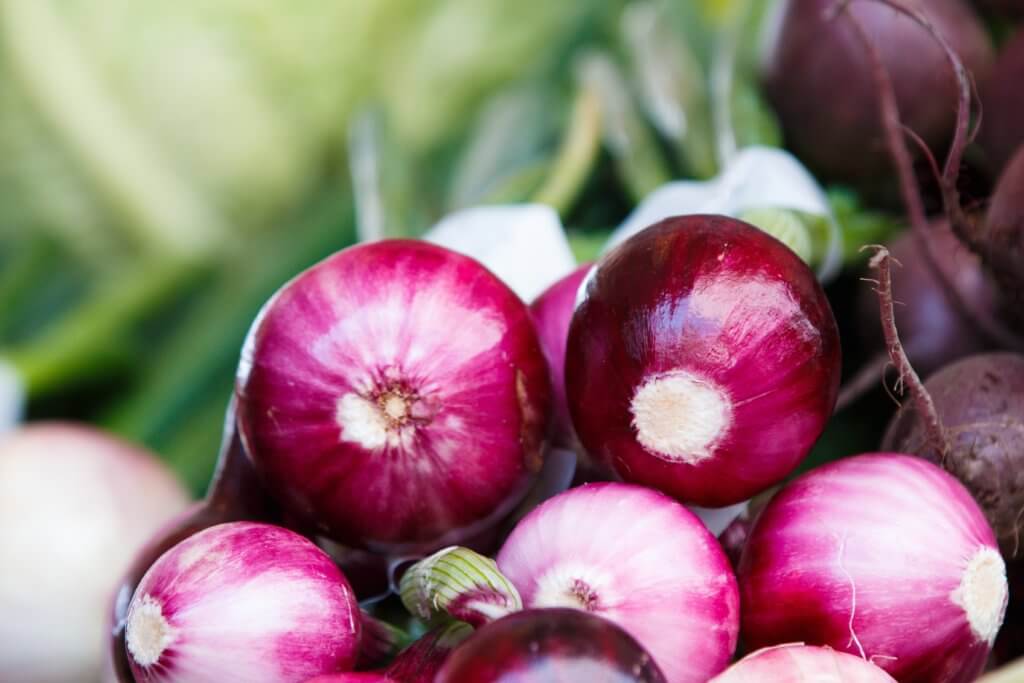Colon cancer is the third most common cancer in the United States, and the third leading cause of cancer-related deaths, according to the Centers for Disease Control and Prevention. It typically affects older adults, though it can happen at any age.
It usually begins as small, benign clumps of cells (polyps) that form on the inside of the colon. Over time some of these polyps can become cancerous. If colon cancer develops, many treatments are available to help control it, including surgery, radiation therapy and drug treatments, such as chemotherapy, targeted therapy and immunotherapy.
When it comes to natural ways to help prevent colon cancer, studies show there are foods that may provide extra protection. Here we’ve listed three items you can find in the produce section at your local grocery store that scientists say will improve colon health.
Purple potatoes
A daily dose of purple potatoes may provide extra protection against colon cancer, according to a study conducted on pigs. Understanding the compounds found in these foods and how they break down in the digestive tract could be crucial for finding new colon cancer treatments.
Scientists gave a group of pigs a high-calorie diet with purple-fleshed potatoes added in and compared levels of colonic mucosal interleukin-6 (IL-6). IL-6 is a protein crucial for inflammation to occur in the intestine, and high levels of it are associated with high levels of proteins linked to the growth and spread of cancer cells in the colon.
IL-6 levels were six times lower in pigs that were fed the diet rich with the purple potatoes than a group given a standard diet and another given a high-calorie diet without the vegetables. Though the study focused on purple potatoes, white potatoes may have helpful compounds as well. But the purple potatoes have much greater concentrations of these anti-inflammatory, antioxidant compounds.
READ MORE: Eat Purple Potatoes To Cut Your Colon Cancer Risk, Study Finds
Red onions
Recent research out of Canada reports that compounds in red onions help kill colon cancer cells. The study, which examined how efficiently five different types of Ontario-grown onions fight cancer cells, found that Ruby Ring onions were the most effective.
The red onion hold high amounts of quercetin, a type of flavonoid that has been shown to help treat heart disease, high cholesterol, diabetes, asthma, and a slew of other conditions. The researchers also found the vegetable contains large concentrations of anthocyanin, which boosts the scavenging aspects of quercetin molecules.

To reach their conclusions, researchers placed colon cancer cells and quercetin extracted from the five onions in direct contact, and found that the red onion was the most effective in destroying the cells. Furthermore, the study found that the vegetables also excel at killing breast cancer cells.
READ MORE: Super veggie: Red onions kill cancer cells
Avocados
Avocados are called a superfood with good reason. Studies show the nutrient-packed fruit is good for the heart, cholesterol, weight loss, and even the brain. One recent study finds avocados also have a positive effect on gut health. Researchers from the University of Illinois say adding avocado to just one meal a day can improve the diversity of microbes in the gut and the healthy substances they create.
The study adds that avocados are high in dietary fiber and monounsaturated fat. Researchers discovered that eating the fruit daily creates a greater number of gut microbes which break down fiber. Compounds called metabolites these microbes create also support gut health.
Researchers say the fact that the fruit contains soluble fiber is also important for digestive health. A medium avocado contains between 12 and 16 grams of the 28 to 34 grams of fiber health experts recommend a person eats each day. While eating fiber is good for the whole body, researchers conclude it’s especially vital for a healthy microbiome.
“We can’t break down dietary fibers, but certain gut microbes can. When we consume dietary fiber, it’s a win-win for gut microbes and for us,” says senior author Hannah Holscher. “Just like we think about heart-healthy meals, we need to also be thinking about gut healthy meals and how to feed the microbiota.”
READ MORE: An avocado a day keeps poor gut health away
